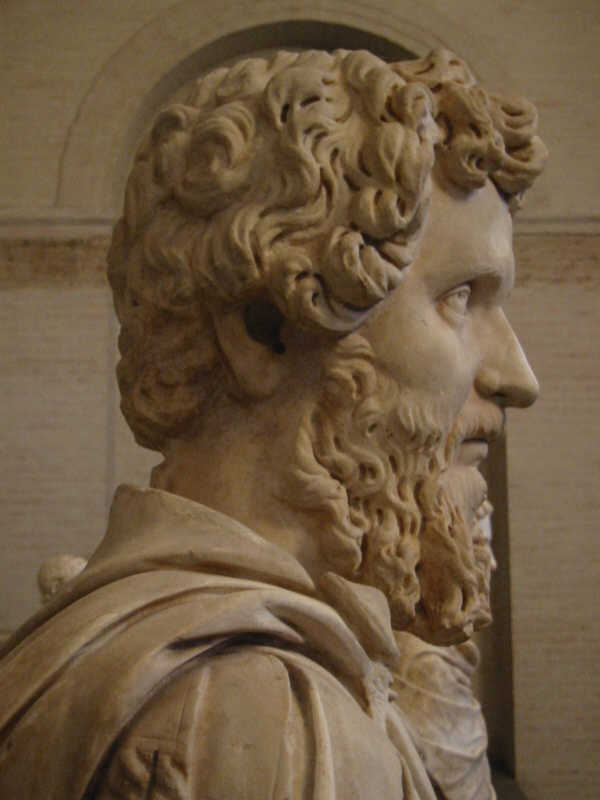Riesstiu IV
Deity
I came across this exert from http://www.nationalarchives.gov.uk/pathways/blackhistory/early_times/romans.htm.
This type of revisionist history always bothers me. Who would believe such nonsense? Just take a look at Septimius's statue...


So what are your opinions on this?
The Multicultural Roman Empire
Our knowledge of Black people present in Britain in early times is scanty. However, studies by scholars, archaeologists and historians have pieced together evidence about the lives of Black Romans.
One historian, Anthony Birley, in his work The African Emperor: Septimius Severus, explains that between AD 193 and 211 the Roman empire embraced a multicultural mix of peoples from Syria, Germany, Britain, Spain and Africa. Eight African men had positions of command in the northern Roman legions, and others held high rank as equestrian officers.
Map of Ancient Roman Empire in AD 211
Document
One of these Africans was Emperor Septimius Severus (AD 145-211). He arrived in Britain in AD 203 and when he died in AD 211 he was cremated in York (Eboracum), the capital of Roman Britain.
A Black Emperor - Septimius Severus (AD 145-211)
Septimius Severus was the first Roman emperor not born and raised in Italy. His father's family originally came from Libya (Leptis Magna) and his mother's family were Etruscans (Italian). His grandfather, a knight of the Roman empire, owned land near Rome, but Septimius grew up in North Africa with his father.
Septimius married Julia Domna, a Syrian, daughter of a high priest. The name Domna is derived from the archaic Arabic word dumayna, meaning 'black'. Septimius and Julia had two sons, Caracalla, the elder, born in AD 188, and Geta.
Because Septimius's ancestors were Roman citizens, he was entitled to be educated in Rome. He briefly practised as a lawyer, became a Roman senator, and from the age of 24 took part in campaigns in Spain, Syria, Gaul, Sicily and Athens. He spent much time extending Rome's borders eastwards across the Tigris in Mesopotamia and the Balkans. His education and experience won him strong support within the empire. He was described by contemporaries such as the famous physician Galen and the historians Herodian and Cassius Dio as 'a man of such energy...wise and successful...that he left no battle except as victor'.
This type of revisionist history always bothers me. Who would believe such nonsense? Just take a look at Septimius's statue...

So what are your opinions on this?

